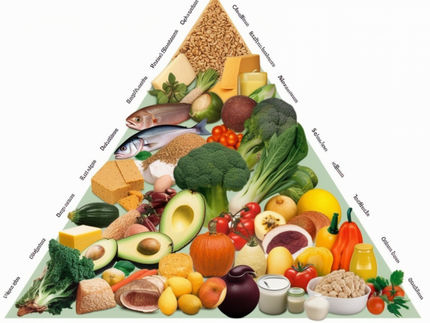How do vegan and vegetarian diets affect health?
Largest study on plant-based nutrition in German-speaking countries begins
Starting signal for the largest study on plant-based nutrition in the German-speaking world: On April 9, 2024, Silvia Bender, State Secretary at the Federal Ministry of food and Agriculture (BMEL), together with Professor Andreas Hensel, President of the Federal Institute for Risk Assessment (BfR), welcomes the first COPLANT study participant at the Berlin-Charlottenburg study center in the presence of the study leaders from the BfR and Max Rubner Institute (MRI). "We want to investigate how plant-based diets affect health and close data gaps," says Professor Andreas Hensel. "Results from earlier studies can only be applied to today's eating habits to a limited extent. For example, the range of highly processed vegan foods high in sugar, fat and salt has increased significantly in recent years," adds Professor Tanja Schwerdtle, Vice President of the BfR.

Symbol image
computer generated picture
COPLANT stands for COhort on PLANT-based Diets - a cooperative project between the BfR, the MRI, the Research Institute for Plant-based Nutrition (IFPE) and the Universities of Jena, Bonn, Heidelberg, Regensburg and Vienna. The project is supported by the BMEL. The Thünen Institute is involved in the area of sustainability. Together with its partners, the BfR is looking for around 6,000 people aged between 18 and 69 who would like to take part. "With the German government's nutrition strategy, we want to make good food in Germany easier for everyone and strengthen a plant-based diet. For me, that means a varied and balanced diet with a high proportion of seasonal and regional fruit and vegetables, high-fiber cereal products, pulses and nuts. Everyone should have the opportunity to eat well, i.e. healthily and sustainably - and also vegetarian or vegan if they want to," said State Secretary Silvia Bender. "To do this, we need more meaningful data on the health, environmental, social and ecological benefits or possible risks of plant-based nutrition. The COPLANT study aims to close these gaps. I am very excited about the results and would like to thank the Federal Institute for Risk Assessment for this important initiative."
Interest in vegan and vegetarian diets is growing - especially among younger people. However, so far there is hardly any scientifically reliable data on the effects of today's plant-based diets on the body. The COPLANT study aims to close data gaps and provide scientifically based dietary recommendations for a healthy and sustainable lifestyle. The COPLANT study focuses on vegan (no animal products), vegetarian (no meat and fish, but dairy products and eggs), pescetarian (no meat, but fish) and omnivorous (mixed diet including all possible animal products) diets.
What is being investigated?
Among other things, the study is investigating how the individual diets affect body composition and bone health. Do the plant-based diets differ from a mixed diet in terms of the intake of undesirable substances? Which vitamins and minerals are sufficiently absorbed and which are not? What happens to the metabolism when animal-based foods are completely avoided? The researchers also want to find out what ecological, social and economic effects the diets have and how sustainable they are overall.
Data collection via app
The diet of all participants is recorded in detail on different days using an app specially adapted for the study. In contrast to previous studies, the consumption of novel vegan and vegetarian foods can also be comprehensively determined. In addition, biomarkers in blood and urine will be examined to determine whether the respective diet is associated with a different intake of contaminants such as heavy metals, mold toxins or other undesirable substances. The submission of a stool sample makes it possible to identify correlations between the different diets and intestinal bacteria.
Take part!
Every participant is important for the success of the study. The more people who take part, the more meaningful the results will be. By taking part, you are making an important contribution to research in the field of plant-based nutrition. You also receive information about your own state of health, for example by measuring your hand grip strength. This provides information about muscle strength and physical performance. Body composition tests show how high the muscle and fat percentage is and an ultrasound on the heel provides information on bone health. The study team will also carry out a complete blood count and measure blood sugar and blood lipids. All information on participation is available at www.coplant-studie.de.
Note: This article has been translated using a computer system without human intervention. LUMITOS offers these automatic translations to present a wider range of current news. Since this article has been translated with automatic translation, it is possible that it contains errors in vocabulary, syntax or grammar. The original article in German can be found here.





























































